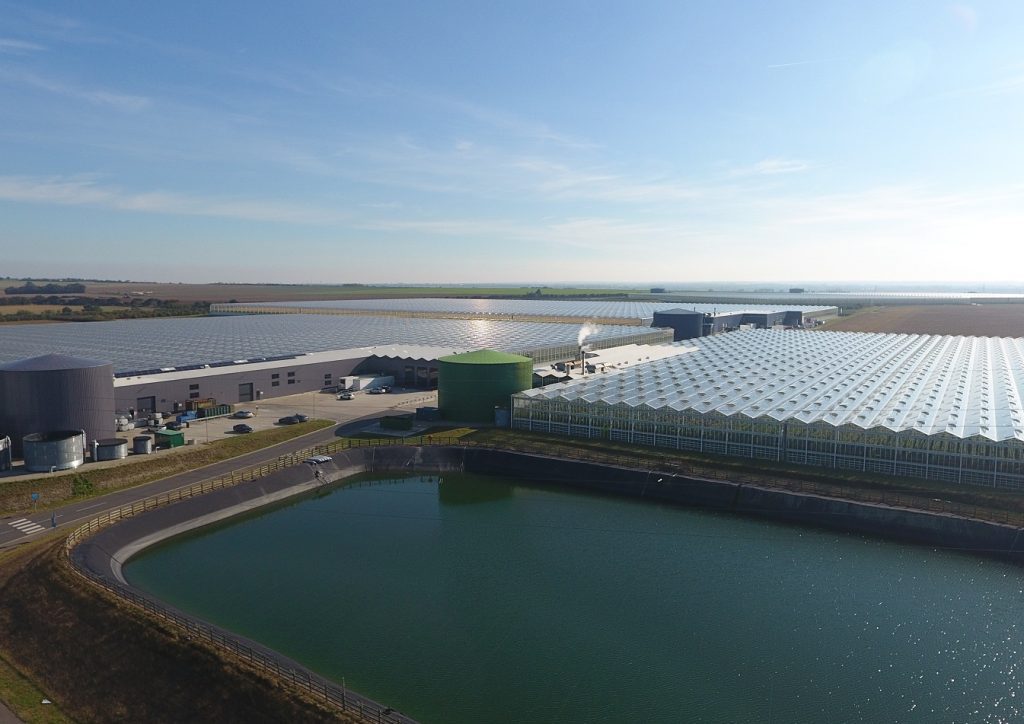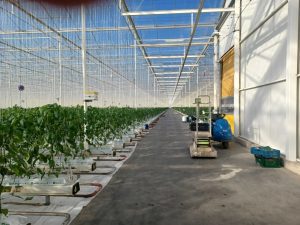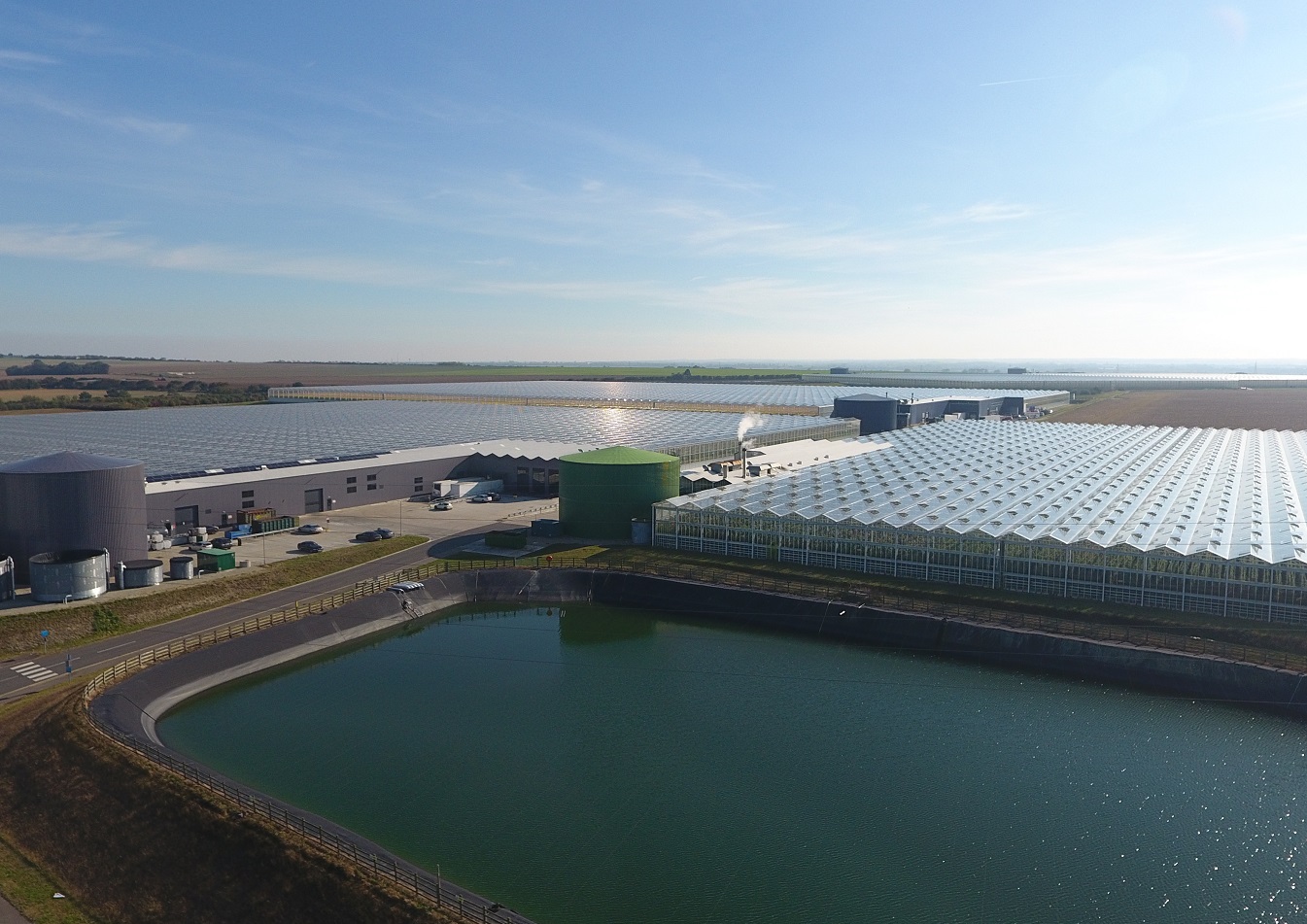The Water and Land Stewardship Team at the South East Rivers Trust (SERT) is working directly with Thanet Earth, the largest food grower using a glasshouse in the UK, to support them on a pathway to greater water resilience.
This is part of our Holistic Water For Horticulture work, an initiative that supports growers across Kent with sustainable water management.
Thanet Earth estimates that it produces about 400 million tomatoes, 30 million cucumbers and 24 million peppers every year. To meet its water needs, the company pumps in groundwater and collects rainwater and condensation from the glasshouses (imagine a greenhouse on an industrial size). However, this is becoming increasingly unsustainable as the company grows and climate change bites.
The drought of summer 2022 was a wake-up call for many commercial food growers, who already faced unprecedented challenges in a time of environmental uncertainty and burgeoning economic constraints.

Extreme changes in seasonal weather patterns, water availability and rising prices for materials, fuel and other goods are just some of the factors affecting the sector as never before. At the same time, measures for food security and environmental sustainability must work hand in hand for the benefit of all.
Kent-based growers already work in an area that is classed as water-stressed, a designation that applies to all of the south east of England. In times of prolonged extreme heat and little to no rainfall such as 2022, restrictions can be applied to protect the environment and ensure that there is enough water for all.
Water is the foundation upon which horticulture businesses are built. The issue of water is particularly relevant for crops that grow under glass or plastic (protected crops), since sufficient quantities of good quality water must be used during the growing season.
Over the next year, SERT’s Water and Land Stewardship team will be investigating options to increase the water supply resilience of the Thanet Earth site. This includes measures to collect, store, abstract and share water, within the context of sustainable water management in the region.
The SERT team will help identify funding options to support the implementation of measures and facilitate contact with key stakeholders and practitioners. These include the local water company, other water abstractors and government agencies. We’ll also help navigate the changes to legislation for water abstraction resulting from the 25 Year Environment Plan and the implementation of the Environment Act 2021.
Water supply of crops at is carefully managed at Thanet Earth
Pleun van Malkenhorst, Managing Director of Rainbow UK (Thanet Earth), said: “As one of the largest local business water users, we are very aware of our responsibility to do so sustainably. By working directly with The Water and Land Stewardship Team at the South East Rivers Trust this will help us to continually improve the way we utilise water on site.”
Dr Samantha Jane Hughes, Senior Water and Land Stewardship Officer at SERT leading on the project, said: “We are really looking forward to working with Thanet Earth over the coming year on how to improve water resilience for a business that is already highly innovative when it comes to alternative sources of water such as rainwater and even condensation harvesting.

“The challenges for this sector are real and we will have to think out of the box and consult with different specialists in order to build a resilient pathway that supports the business, helps to ensure food security and does not impact the environment.”
The HWH project supports food and drink businesses through the Courtauld Commitment 2030 Water Roadmap, a voluntary commitment that supermarkets, food brands and the businesses that supply them sign up to protect critical water resources for food production, nature and local communities.
The key target of the C2030 roadmap is that 50% of the UK’s fresh food is sourced from areas with sustainable water management.
The HWH project works across the sector to identify site-specific measures to improve water self-sufficiency of growers and to reduce impacts caused by excess water runoff through nature-based solutions.
Would you like us to visit your farm and develop a free plan on using water? Contact us by clicking on this link.

